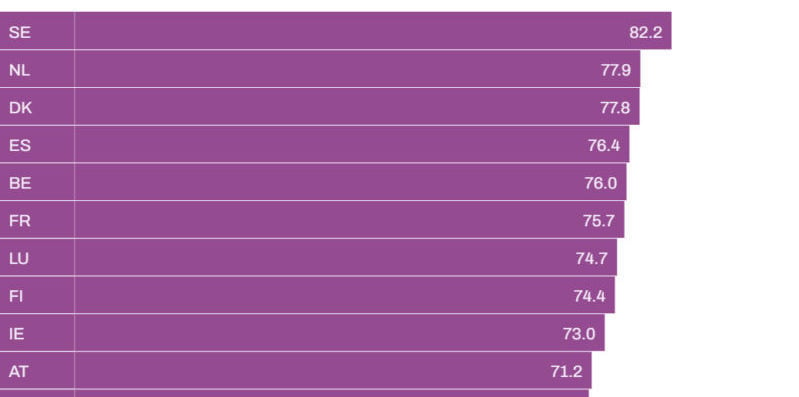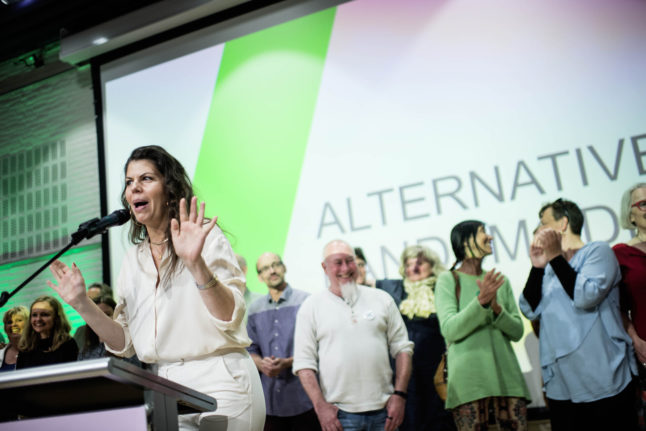On the face of it, Denmark is one of the most gender-equal countries in the world, ranking third in the European Institute for Gender Equality’s 2023 ranking, just behind Sweden and The Netherlands.
Denmark was ahead of The Netherlands in women’s equality in the workplace and in income equality. The country also did well when it comes to women in positions of power. It was one of only five EU countries with a female prime minister, one of five where over 40 percent of MPs are women, and has the 10th highest proportion of female MEPs in the EU.

It is generally easier for women Denmark to return to the workforce after having a child, as the generous parental leave system — with each parent granted 24 weeks each of leave following the birth of a child — encourages men to be more involved, by earmarking 11 weeks of leave for each parent.
The country has heavily subsidised daycare which is available from the time a child is 26 months old. This costs about 3,800 kroner a month in a big city like Copenhagen.
Women also perform very well in education, overtaking men in the number studying a long course at university in 2017, since when their lead has steadily increased with 249,610 women completing a “long higher education” compared with 221,243 men. About 376,640 women have completed some form of higher education, well above the 270,003 men who had a degree.
Where Denmark falls behind
But this hides some less flattering statistics.
Even though women are more likely to be educated to a higher level than men, this is not reflected in their earnings. The most recent comparison of the gender pay gap in different EU countries found that women in Denmark earned 13.9 percent less than men.
That is a a bigger pay gap than the EU average of 12.7 percent, and the 9th worst score, below countries like Bulgaria, Croatia, Romania and Italy, even if was better than Norway (14.4 percent) and Germany (17.7 percent). This also leads to a so-called ‘pensions’ gap of 17 percent, with men’s pensions far outweighing women’s.
The pay gap in Denmark is often put down to women being overrepresented in less well-paying caring professions such as nursing or teaching, but a study by Copenhagen Business School in 2022 found that women are also paid on average 7 percent less than men for doing the exact same job.
While this may be disappointing, the study found the wage gap for the same job was lower in Denmark than in any other country in the EU apart from France, with women in Sweden and Norway suffering wage discounts of 8 percent and 9 percent respectively.
Women are also heavily underrepresented at the leadership level in Danish businesses, with women only making up 19 percent of board members of Danish companies and only 16 percent of directors.
This compares very poorly to neighbouring Norway, where gender quota laws have led to women taking up 41 percent of board seats.
Parental leave
In 2021, women still took the largest share of parental leave by far, taking 278 days compared to just 36 for men. Since new rules came in in 2022, the number of fathers taking parental leave has increased by 40 percent, but the number of days men spend at home changing nappies still remains far below the time that new mothers put in.
Violence
One area where Denmark’s performance is deteriorating rather than improving is violence against women. Since 2015, there has been a sharp increase in the number of reports of violence against women, with 486 women per 100,000 making such a report in 2021, up from just 220 per 100,000 in 2015.



 Please whitelist us to continue reading.
Please whitelist us to continue reading.
Member comments